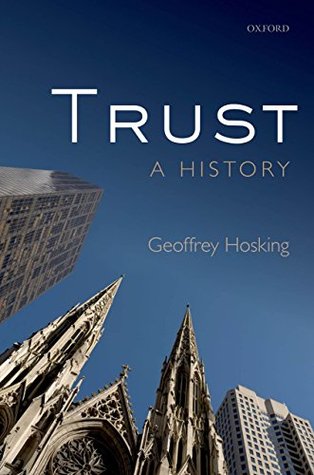Kindle Notes & Highlights
The downside of enlarging the boundaries of trust, then, is that the resultant organizations are larger, more remote, and usually more impersonal.
the spread of peace by means of war has remained a paradox and a problem,
the original Christian impulse originated in a movement for the preservation of peace.
The unification of Central Asia under the Mongols improved conditions for a century or so (mid-twelfth to mid-thirteenth century): they provided routes with periodic way stations and caravanserais, where food and water could be obtained, as well as a modicum of protection against robbers and bandits.
When people do not trust money, because of high inflation, revolution, or other rapid social change, it is a symptom of the general weakening of trust throughout society which often entails an abrupt transformation of political power too.
‘Money is everywhere conceived as purpose, and countless things which are really ends in themselves are thereby degraded to mere means.’
Those forming partnerships had therefore to know their colleagues well and to trust them completely. That implied that their customers could trust them no less confidently: a reputation for honesty constituted a kind of ‘moral collateral’ crucial to business success.
The Times warned of ‘societies in which friendship, ability, knowledge, education, character, credit, even monied worth is in a great measure disregarded, and money, the mere amount and value of the shares standing in the name of each, is the sole bond of connexion between the proprietors’.
money is an isolationist symbolic system, one which tends to disengage completely from other systems and then to colonize and enfeeble them, including religion, law, culture, and everyday codes of ethical behaviour.
In the absence of a strong public authority the wealthy are able to exploit and victimize the poor with much less restraint.
Law, then, strengthens the predictability of social relationships, confidence in their stability, and the possibility of individual acts of trust. It is more the existence of law—the confidence that in the last resort one can appeal to it—which has this effect, rather than its specific provisions and procedures.
Without an effective overarching authority, in the middle ages many local communities had to improvise their own methods for upholding peace and order. They would usually endeavour to create intermediate associations to deal with criminals and disturbers of the peace.
This system of peacekeeping and mutual policing was known as ‘francpledge’. It could not operate unless the tithing members knew a lot about each other, and that knowledge in turn implied that they had to some extent to trust each other or at least to know the limits within which they could do so.
The creation of background peace within a given territory, so that routine transactions could be carried on with confidence, was perhaps the most effective way of creating generalized social trust.
The king would achieve this by sending out circuit judges to consult with local juries—assemblies of sworn ‘best people’—to examine evidence in disputed cases and reach reasoned decisions, which would then be recorded in writing, so that they could act as guidance for future cases. 55 This procedure proved very popular, so much so that in the end the royal judges could not cope, and had to hand back some powers to local elites to act as Justices of the Peace—an institution which has survived to the present day.
The state thereby provided a durable and reliable framework for the trust and loyalty of the king’s subjects. 60 Along with the capacity to defend the realm, this still remains the rationale for the existence of the modern state and its basic claim to legitimacy.
‘the sense of institutions being legitimate—especially the institutions of government—is the glue that holds society together.
As I have said, total distrust is intolerable; hence it is understandable that, at a time when few people feel they can trust the institutions and persons with whom they interact regularly, they should look to a strong figure to personify an ideal of social order.
trust in the trustworthy is at the heart of capitalism.
in searching for solutions, we need to place the concept of trust in the trustworthy at the centre of our rethinking.
Cutting expenditure and raising tax levels can only be pursued up to a certain point. Beyond that, austerity, especially if it is accompanied by growing inequality and social injustice, becomes unacceptable to the people. It breaches the tacit contract involved in democracy, which is itself a prerequisite of modern trust structures,


